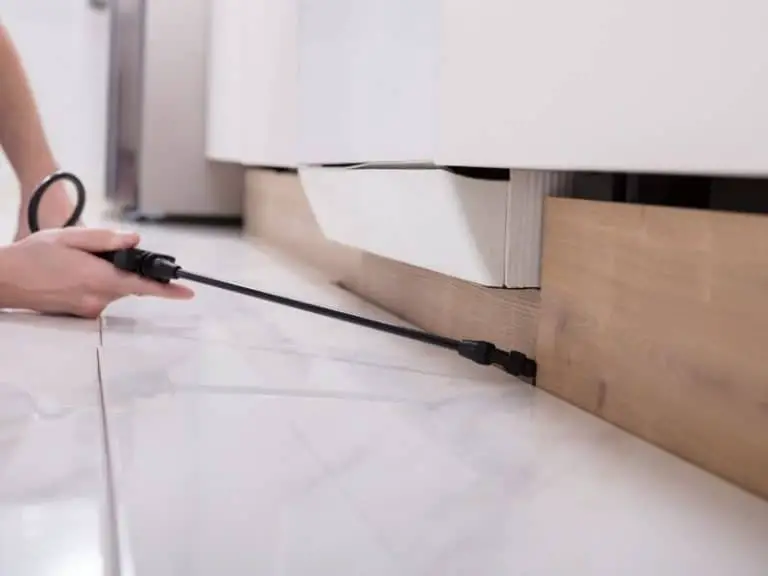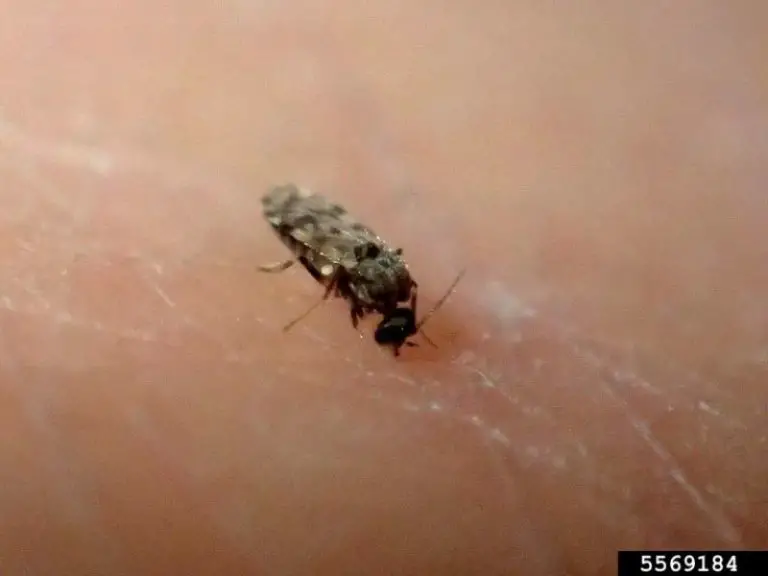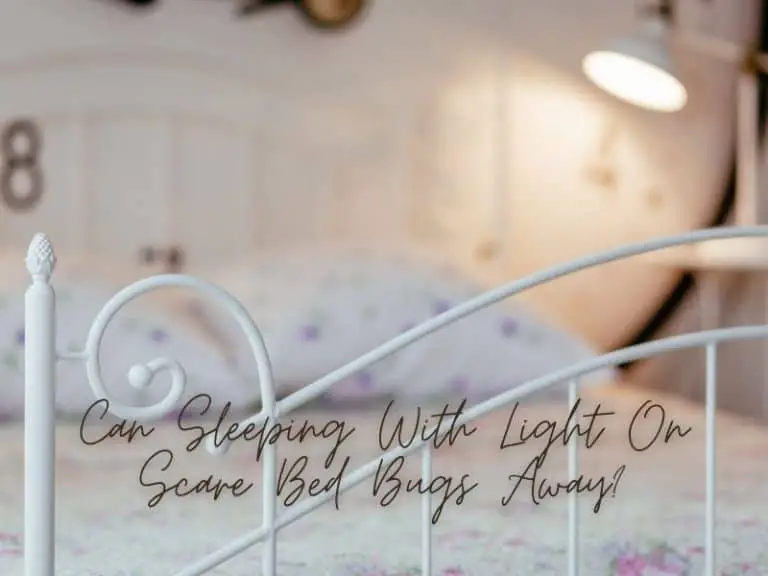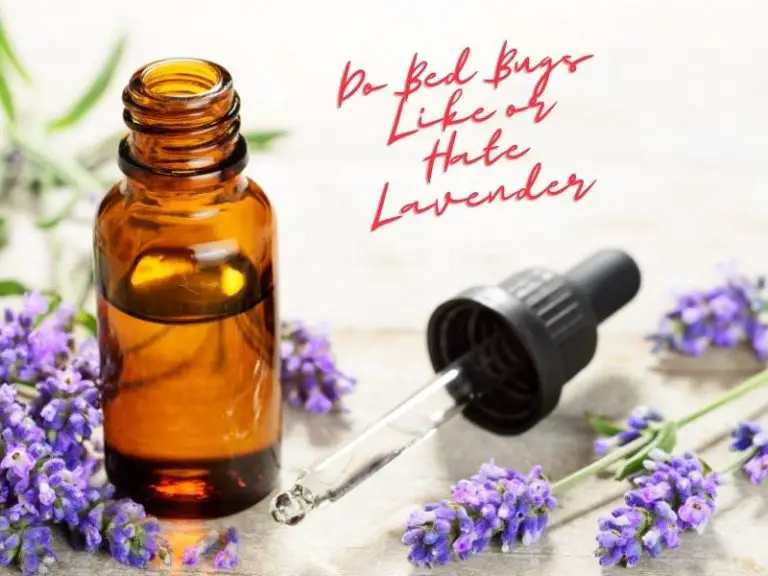Smells That Bed Bugs Hate, But People Love
Bed bugs can find where you are sleeping by picking up carbon dioxide that you breathe out. They simply follow its trail to gain access to your blood. While they are attracted to carbon dioxide, bed bugs are repelled by certain smells, which homeowners who wish to exterminate bed bugs the DIY way may use against those pests.
There are many chemical-free bed bug repellents, such as rubbing alcohol, lemon juice, vinegar, peppercorn, cayenne pepper, and cinnamon. Bed bugs also hate the smell of some oils, like lavender, neem, lemongrass, blood orange, tea tree, and peppermint.
Before we proceed, there is something that you need to know: some of the smells that bed bugs hate are capable of not only repelling them but also killing them.
This is provided that they come into direct contact with them. Often, too, home remedies for a bed bug infestation need to be carried out repeatedly for best results.
By the way, let us first briefly talk about the idea that bed bugs are attracted to certain blood types, which is said to be why some people are more prone to waking up with bed bug bites all over than others.
Here’s the deal: there is no proof that bed bugs are attracted to certain blood types only.
If the ones in your room are from a line of bed bugs that were raised feasting on AB- blood, then it’s likely for them to prefer AB- blood over any other type of blood. However, it’s for certain that they will consume just about any blood type when famished.
If you have family and friends who are also looking for all-natural ways to deal with bed bugs, please share this on social media so that they, too, may give a try the different smells discussed below that bed bugs hate.
By the way, check here if you want to know the best bed bug killer powders (safe for humans and pets) on Amazon.com now.
Lemon Juice (Do Not Dilute With Water)
Drinking lemon juice can help strengthen the immune system because it is packed with vitamin C. It is also effective for disinfecting and deodorizing the home.
Although lemon juice is beneficial to humans and the home, bed bugs cannot stand it. As a matter of fact, some of them may die upon contact with it due to its acidity.
The strong citrus smell of lemon juice, which humans find delightful, is disgusting for bed bugs. This is why it can be used as an all-natural bed bug repellent.
What’s really nice about lemon juice is that, aside from being a repellent, it can also be used as a bed bug insecticide — being acidic, it can kill some bed bugs on contact. You may squeeze halved lemons on bed bugs, their eggs, and their hiding places. For consistency, place lemon juice in a spray bottle.
Remember a couple of things when you are planning on using lemon juice as a bed bug insecticide:
- Do not dilute it with water.
- Make sure that it’s freshly squeezed.
Here’s a quick tip from people who are into DIY remedies for everyday home and beauty problems…
You can come up with a homemade bed bug repellent that you may apply to exposed areas of the body before hopping into bed. All you have to do is combine hand and body lotion with a little fresh lemon juice.
The best hand and body lotion for the job is the unscented kind. This helps ensure that nothing will mask the smell of lemon juice that bed bugs absolutely hate.
However, you may try another homemade bed bug repellent if you have sensitive skin. That’s because the acidity of lemon juice may cause dryness, irritation, and itchiness.
Rubbing Alcohol (Don’t Use on Wood)

If you don’t have plenty of time to slice and squeeze a lot of lemons just to get rid of bed bugs naturally, fret not. That’s because there is something that you may go for that’s ready to use. It’s none other than rubbing alcohol.
These days, rubbing alcohol is one of our top defenses against COVID-19. If you have no access to soap and water or are too impatient to wash your hands long enough to complete singing the “Happy Birthday Song” from beginning to end twice, then reaching for a bottle of rubbing alcohol (at least 60%) is an option.
You can use rubbing alcohol to kill the COVID-19 virus on your hands and surfaces as well as bed bugs.
Just like lemon juice, rubbing alcohol can work as both bed bug repellent and insecticide — bed bugs cannot stand its smell, and cease to live when they come into contact with it.
While highly effective, there are a few problems with using rubbing alcohol against a bed bug infestation:
- There are surfaces that you shouldn’t spray rubbing alcohol on if you want your bedroom (or any other area in the home) to stay looking great.
For instance, rubbing alcohol can dissolve the finish of the wood. Needless to say, it’s a complete no-no to spray it on expensive wooden pieces of furniture that you treasure.
- Using lots of rubbing alcohol all at once to put an end to the bed bug-related problem is strongly discouraged. Keep in mind that rubbing alcohol is a highly flammable substance. This means that it can ignite.
So, in other words, rubbing alcohol as a DIY bed bug remedy is a fire hazard. Even if there is no open flame nearby, excessive amounts of rubbing alcohol can produce enough vapors that can travel to a source of ignition and potentially burn down your house. Rubbing alcohol should be used sparingly only to be safe.
Fun Fact
Some pieces of evidence show that bed bugs do not like blood with alcohol.
This does not mean, however, that you should start drinking a lot nightly just to keep bed bugs from biting. What’s the point of being free of bed bug bites if you have liver disease and cancer of the various parts of the gastrointestinal tract?
Vinegar (Never Mix With Bleach)
Are you into an assortment of homemade household cleaning products? Then you may already know by heart that vinegar is a fantastic deodorizer and disinfectant, just like lemon juice.
It’s no wonder why there are a lot of DIY all-purpose cleaner recipes you can find on the internet that require combining vinegar and lemon juice.
When it comes to getting rid of bed bugs, you can count on vinegar. Experts in home remedies for a bed bug infestation say that distilled white vinegar is the best one for the job.
Just like lemon juice, vinegar is acidic enough to kill any bed bug that comes into contact with it. You should place it in a spray bottle to make it easier to douse bed bugs with it.
However, there are a couple of disadvantages to using vinegar in putting a bed bug infestation under control:
- It can make your bedroom really smelly, especially if you spray lots and lots of it!
- While it can kill bed bugs, sadly, it cannot destroy bed bug eggs even if it’s sprayed directly on them.
For best results, it’s a good idea to spray the hiding places of bed bugs with vinegar at least once a week for several weeks.
The goal is to make sure that you slash the number of survivors each time. As with the eggs, you will have to rely on a different home remedy that can destroy them before they hatch.
Make sure that you read this carefully before you check out the next entry…
Just in case you come across an anti-bed bug recipe online that requires combining vinegar with bleach, never give it a try.
That’s because mixing vinegar and bleach creates chlorine gas, which is very toxic and even lethal if large amounts of it are inhaled.
So, in other words, it’s not just bed bugs that it can eliminate but also you!
Peppercorn or Black Pepper
There are different telltale signs that you have a bed bug infestation going on in your bedroom. One of them is the presence of dark spots that kind of look like peppercorns. Those are the feces of bed bugs.
Here’s another way to put it: those are bits of digested blood — your blood that bed bugs feasted on while you were fast asleep.
And speaking of peppercorns, many people swear by the effectiveness of sprinkling some of them in cracks and crevices in driving bed bugs out of their hiding places.
Sometimes referred to as black pepper, peppercorns are well-known culinary and medicinal herbs.
Aside from making a lot of dishes taste and smell phenomenal, they also provide a number of health and beauty perks, ranging from lowering cancer risk, reducing joint pain and swelling, to dealing with acne.
You may also rely on peppercorns if you wish to control a bed bug infestation without contacting the pros!
Unfortunately, unlike lemon juice, rubbing alcohol, and vinegar, peppercorns can only repel bed bugs and not slaughter them. The good news is that peppercorns are highly effective at driving bed bugs nuts, causing them to flee and look for other hiding places.
By placing peppercorns in every potential hiding spot, it is possible to put the infestation under control by killing bed bugs in the open with the all-natural bed bug insecticide of your choice.
Just before you proceed with reading the next entry, here’s a tip that you might want to keep in mind: when using peppercorns to repel bed bugs, wear a mask — unless you don’t mind sneezing endlessly!
Cayenne Pepper Powder

A moderately hot chili pepper related to jalapeños, pimientos, and bell peppers, the cayenne pepper has been used for centuries now as a culinary and medicinal spice.
However, it was back in 2007 when a lot of heads turned towards its directions, particularly when Beyoncé claimed that the lemonade diet (also called the “Master Cleanse Diet”), which included cayenne pepper powder as one of the four ingredients, helped her get rid of 20 pounds in a couple of weeks.
Well, it’s not just excess weight that cayenne powder can deal with but those pesky bed bugs, too.
Before you rush to the spice rack in your kitchen and grab a bottle of cayenne powder, here’s something that you need to know: the red-brown powdered spice is merely a repellent, not an insecticide.
Making bed bugs scamper away is cayenne pepper powder’s irritating properties.
Sprinkling it in all potential hiding places helps ensure that bed bugs will run out of areas where they can sleep and mate. But see to it that you will kill bed bugs that you can spot fleeing.
Otherwise, they might migrate to a different room in your home if they realize that there are no more hiding places left for them in your bedroom.
Some people who are into DIY bed bug remedies prefer dissolving cayenne pepper powder in water and then using a spray bottle in administering the homemade bed bug repellent.
Lavender Oil (Destroys Bed Bug Eggs)
Are you into aromatherapy? Then you must be well-aware that lavender essential oil is one of the best all-natural remedies for stress, anxiety, and insomnia.
Although the extremely pleasing aroma that it possesses may be relaxing for humans, it’s the complete opposite for bed bugs — lavender essential oil can leave them agitated.
It’s because of this why lavender essential oil is one of the leading chemical-free bed bug repellents out there.
What’s so nice about lavender essential oil is that it can not only repel bed bugs but also actually kill them. Yes, it can serve both as a repellent and insecticide.
Just like other essential oils, lavender essential oil needs to be diluted with water or carrier oil beforehand.
If you choose to dilute it with water, refrain from adding lots of water to keep it from getting too weak to have any beneficial effect. The recipe is that for every 30 to 40 drops of lavender essential oil, you should add two tablespoons of water only.
If you prefer to dilute lavender essential oil with a carrier oil, it’s a good idea to opt for one that doesn’t have a powerful odor. This is to make sure that lavender’s smell, which bed bugs cannot stand, will remain intact.
Jojoba oil is one of the top picks of aromatherapy experts as this carrier oil is completely odorless.
Lavender essential oil should be sprayed directly on bed bugs — it will kill them on contact, although there is a possibility for some of them to survive the ordeal, especially if you are using lavender essential oil that’s been diluted excessively or isn’t that pure.
With the right strength and quality, the lavender essential oil can destroy bed bug eggs, too.
Regularly spray with lavender essential oil all potential hiding places on a daily basis to keep remaining bed bugs in the open, thus allowing you to easily douse them with the nice-smelling and all-natural insecticide.
Lemongrass Oil (Toxic for Cats)
Earlier, we mentioned that lemon juice is very good for repelling as well as exterminating bed bugs.
Because it possesses the smell and pretty much the same chemical composition of lemon juice, it’s no wonder why lemongrass essential oil is also an effective DIY remedy for bed bugs.
It has a pleasing smell known to uplift the mood, which is why it is a popular remedy for anxiety and depression in the world of aromatherapy. On the other hand, bed bugs fully hate the way it smells.
Spraying lemongrass essential oil in cracks and crevices can drive bed bugs out of them and never come back, provided that you reapply it daily.
Spraying lemongrass essential oil directly on those blood-loving critters will kill them instantly.
It can also destroy the eggs and keep them from hatching, and that is why lemongrass essential oil is effective for putting the population of bed bugs in your bedroom under control.
Because it has a lovely aroma, you will not have a hard time sleeping in your room after using it. Making you enjoy some shut-eye even more is the assurance that comes with knowing that lemongrass essential oil can help you lead a bed bug-free life soon enough.
Unfortunately, there is one problem that comes with this DIY solution for bed bugs. And it’s none other than the fact that lemongrass essential oil is toxic to cats.
According to veterinarians, lemongrass essential oil can collect in the bloodstream of our feline friends, causing liver damage.
So if you have a cat, it is a good idea to look for a different home remedy for bed bugs. However, you should know that the lemongrass plant is completely safe for cats — it’s just that the essential oil obtained from it has concentrated amounts of compounds that are harmful to cats.
Sadly, the lemongrass plant cannot be used as a bed bug repellent and insecticide.
Tea Tree Oil (Prevents Dandruff and Body Odor)
Individuals who are into all-natural healing should never be without a bottle of tea tree oil in their medicine cabinets and first aid kits.
That’s because this oil, which is obtained from an herbal plant having the same name that’s native to Australia, is an all-around healer.
Here are just some of the things that can be prevented and managed with tea tree oil:
- Wound infections
- Athlete’s foot
- Dandruff
- Psoriasis
- Acne
- Body odor
- Bad breath
- Insect bites
Speaking of which, tea tree oil is one of the most powerful solutions for bed bugs that come from nature. And because it is 100% natural, you can rest assured that no one will be in peril as you attempt to deal with a bed bug infestation.
Pure tea tree oil is extremely potent. This is why you should dilute it before using to eliminate bed bugs from your life.
This is how strong tea tree oil is: in a spray bottle filled with water, you should only add about 20 drops of the oil. Give the bottle a good shake and then spray away.
What’s so nice about tea tree oil is that it can not only repel bed bugs but kill them as well. So go ahead and generously spray it in tight spaces and corners where there could be bed bugs — tea tree oil can kill them on contact.
By the way, earlier, it was mentioned that tea tree oil is an effective home remedy for insect bites. After using tea tree oil as a bed bug repellent and insecticide, you may daub it on your bed bug bites to reduce both itchiness and redness.
Neem Oil
For centuries now, traditional healers in India rely on a plant native to the Indian subcontinent for dealing with an assortment of health problems.
Some of them include a weakened immune system, liver disease, blood toxicity, digestive issues, and respiratory concerns.
Elsewhere on the planet, the same plant can be seen incorporated in various cosmetic products, such as soaps, hand and body lotions, shampoos, and toothpaste.
It’s called neem, a medicinal herb known to possess natural insecticidal properties.
This is why you can easily come across powders and sprays for getting rid of all sorts of crawling pests, including most especially bed bugs, being sold on the internet.
Many of them are suitable for dealing with infestations in the garden — neem is so gentle that it won’t harm plants. But it is unforgiving when it comes to bed bugs!
Aside from various anti-bed bug products with neem in them, you may also get your hands on neem essential oil.
The product is quite popular among people who wish to deal with wrinkles, skin dryness, acne, scars, and dandruff the aromatherapy way. It’s also highly effective against fungal infections like ringworm and athlete’s foot.
Just like lavender essential oil, neem essential oil is capable of repelling as well as killing bed bugs. And, by the way, it is very good at killing bed bugs in their various life stages, including the eggs.
Here’s a fact that will surely leave you impressed with neem essential oil…
It is the only biopesticide — pesticide obtained from nature — which is approved by the Environmental Protection Agency (EPA) for indoor use!
So, in other words, the use of neem essential oil for dealing with a bed bug infestation won’t put you, your loved ones, your pets, and even your plants in danger.
One of the reasons why a lot of homeowners choose to eliminate bed bugs via some home remedies is that they do not want to get exposed to harmful chemicals.
Well, neem essential oil can give anybody total peace of mind that no will be put at risk as it’s EPA-approved for indoor use.
Blood Orange Oil

It’s no secret that the diet of bed bugs consists of one thing only: your blood. But just because they love feasting on your blood doesn’t necessarily mean that they will touch anything that has the word “blood” in its name.
Rather than feel attracted to it, bed bugs feel repulsed by blood orange essential oil.
This remedy for a bed bug infestation is obtained from blood orange, which got its name from the fact that its pulp looks like it has been doused with blood. Oil extracted from the fruit, on the other hand, is a pale yellow to deep orange in color.
While effective at getting on the nerves of bed bugs and thus causing them to run away, blood orange essential oil can offer nothing more when it comes to dealing with a bed bug infestation.
Yes, unfortunately, it can only repel bed bugs and not kill them.
Needless to say, you should pair the use of blood orange essential oil with another home remedy for bed bugs, particularly one that is proven to kill them.
For instance, since rubbing alcohol should be used sparingly to prevent fires, it’s a good idea to use blood orange essential oil to drive bed bugs out of their hiding places, and then kill them with rubbing alcohol.
Regularly spraying blood orange essential oils in cracks, crevices, holes, and corners can keep bed bugs from gathering there.
Peppermint Oil
Have you already tried applying undiluted peppermint essential oil to your skin? If so, then you know so well that it can cause a nasty burning sensation.
Well, it’s exactly because of this why it is a powerful bed bug killer. Upon contact, peppermint essential oil’s high menthol content can cause those bed bugs to breathe their last.
Some people are sensitive to the characteristic smell that bed bugs give off, which is often described as being similar to coriander or rotten berries. However, there are also those who cannot smell anything at all.
If you are one of those who tend to know the presence of bed bugs based on the smell of the room alone, it’s highly recommended that you get your hands on a bottle of peppermint essential oil. It’s like hitting two birds with one stone — it lets you kill bed bugs and, at the same time, allows you to mask their smell.
Fret not if you cannot seem to come across a bottle of peppermint essential oil. That’s because there are a handful of alternatives to it, each one also possessing the same powerful minty smell of peppermint essential oil. Here are just a few of them:
- Eucalyptus essential oil
- Spearmint essential oil
- Wintergreen essential oil
- Pennyroyal essential oil
Cinnamon Oil or Powder
Everyone knows that cinnamon can make a lot of baked goodies cause the mouth to water. The same common baking ingredient can also cause bed bugs to run away. It may cause them to die, too, in some instances.
Available at most supermarkets and baking supplies stores, you can sprinkle cinnamon powder on your mattress, box spring, and upholstered furniture. You may also generously dust it under the carpet and rugs, as well as on clothes and stuffed toys that you feel are infested with bed bugs.
The unmistakable odor of cinnamon powder may be pleasing to the nose of humans alright, but it is irritating to bed bugs. It’s because of this why this red-brown powder is a very good bed bug repellent.
While cinnamon powder isn’t capable of killing bed bugs, cinnamon oil can — and it does it on contact. That’s because cinnamon oil is so irritating.
As a matter of fact, a single drop of it coming into contact with your skin is enough to cause severe irritation, in some instances coming close to a chemical burn in terms of symptoms and severity.
It’s exactly because of this why, when handling pure cinnamon oil, you should wear latex gloves!
Since it’s so potent, you should dilute cinnamon oil before using it to kill bed bugs. For every 10 parts of water, you should add only one part of cinnamon oil. Remember to always spray the mixture away from your skin and eyes.
Just Before You Start Spraying Away
Smells that bed bugs hate are referred to as repellents. You can easily get your hands on them at most local hardware and home improvement stores if you are experiencing a bed bug infestation.
However, the majority of these products may contain toxic ingredients that are bad for you, your family members, and your pets.
Fortunately, there are many all-natural alternatives to commercially sold bed bug repellents, and most of them may be in your home already. Some of them may be in your medicine cabinet, while others may be in your kitchen.
If you are into aromatherapy, then a few of the essential oils that you may have can help drive those bed bugs away, although some are capable of killing them on contact, too.
Do take note that repellents only repel bed bugs and not kill them. If you want to put the bed bug infestation to an end through the DIY approach, pair the use of repellents with home remedies that can exterminate bed bugs.
Photo credit: ©canva.com/lee, ©canva.com/brandxpictures, ©canva.com/neirfy, ©canva.com/olgaorly
Medical Disclaimer: TheHomePestControl is a digital publisher and does not offer personal health or medical advice. The contents of this website are not intended to substitute for professional medical advice, diagnosis, or treatment.
Affiliate Disclaimer: As an Amazon Associate, I earn from qualifying purchases made on our website. If you make a purchase through links from this website, I may earn a commission at no additional cost to you.






